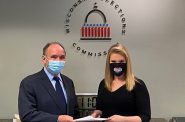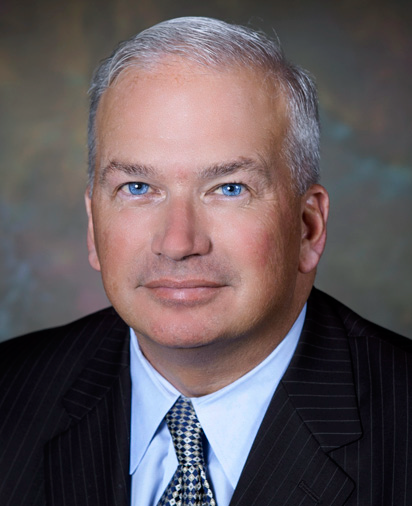Why Tenure and Shared Governance Are Needed
Legislators' push for top-down management will damage UW System and chase away top faculty.
Scott Fitzgerald (R-Juneau), Senate Majority Leader, revealed that a “Republican discussion” of tenure and shared governance at UW campuses has been underway for some years. Republicans seem to have convinced themselves that both tenure and shared governance lead to inefficiencies: tenure to laziness and shared governance to inflexibility because the faculty and staff — mere “employees” in their view — oppose changes and even play a decisive role in the selection of administrators, effectively allowing them to “choose their own bosses.”
Actually, tenure and shared governance are essential to the peer-review process that has been a proven driver in the production and dissemination of new knowledge. Rather than stand in the way of change, these protections of the integrity of research drive change by assuring that those with research expertise play a key role in all university’s decisions. Moreover, the strong traditions of tenure and shared governance have enabled the UW System to be extremely successful in attracting excellent professors and research staff to its many campuses. The loss of either would seriously degrade the ability of the UW to hire and retain scholars in the highly competitive academic marketplace.
Sections 34-39 of the omnibus budget of the Joint Finance Committee (which was passed by the state Senate and is now before the Assembly) recommend a reorganization of the university system into a top-down authoritarian “business model.” Such an organization cannot work for a university because academic faculty and staff are not conventional employees. Instead, they are experts, teaching and researching in some unique, and often esoteric, fields of study. Unlike traditional employees, they advance the progress of knowledge by taking direction from an international peer-review process within their specialized discipline; academic managers such as deans, provosts, and chancellors cannot possibly be conventional “bosses” for these researchers because it is next to impossible for these academic managers to be that familiar with the nuances of research being done. Imagine a dean in the role of “boss” telling a physics professor, “When you’re done explaining Maxwell’s equations, I have a nucleus for you to bombard.” Rather than direct research, the role of administrators is to allocate resources to facilitate the research programs of the scholars. Imposing a top-down organizational structure on the UW and expecting its academic managers to function as “bosses” and “CEOs,” would only serve to damage a superior research institution.
Unfortunately, the JFC omnibus motion proposes just such a chain of subservience, mimicking a conglomerate business model with an array of subsidiary corporations headed by chancellors, serving as “CEOs.” In such a structure, faculty would be on the bottom rung; even their research agenda and curriculum could be subject to direction from higher ups. According to the motion’s language, academic managers would have authority to “modify and redirect” an academic department about whose subject they quite likely know exactly nothing.
Although the UW Board of Regents and UW System president Ray Cross have declared their intent to retain current tenure and governance guidelines in regent policy, the language in the JFC motion clearly states that both lie below the legislature and governor in the chain of subservience; therefore such assurances are not theirs to give. Moreover, the policy directives of the current regents are not binding on future regents. Similarly, despite the strenuous efforts of UW Madison Chancellor Rebecca Blank and UWM Chancellor Mark Mone to reassure the faculty that tenure and governance will continue without operational change, the actual language of the omnibus motion means that they cannot credibly offer these assurances from their new positions of subservience to the legislature.
Chancellor Blank seems to realize that and has issued a press release expressing her disappointment that the JFC budget proposal “does not eliminate or modify the language around faculty dismissals to align with the standards of our peer institutions and the American Association of University Professors…the inclusion of this language has created negative national publicity that will hinder the ability of UW–Madison to attract and retain the best faculty and staff.”
It is hard to imagine a worse time to compromise the competitive position of the UW. The academic job market is increasingly competitive as two trends are leading to more openings of faculty and staff positions across the country. While six states – Wisconsin among them – are continuing a disinvestment in higher education begun during the Great Recession, many other states have reversed course and have begun to reinvest in their colleges and universities, which could improve their ability to attract top faculty. In addition, baby boomers who came into academic life in large numbers during the 1960s and ‘70s are beginning to retire. While opportunities for faculty are improving elsewhere, Wisconsin’s leaders have decided that now is a good time to undermine the very foundation of the university system’s excellence.
William L. Holahan is emeritus professor and former chair of the Department of Economics at UW-Milwaukee. Charles O. Kroncke is retired dean of the College of Business at UWM. They are co-authors of “Economics for Voters.”
Op-Ed
-
Why Vote for MPS Funding Referendum
 Mar 30th, 2024 by Nehemiah Edwards
Mar 30th, 2024 by Nehemiah Edwards
-
Wisconsin’s Very Own Rudy Giuliani Should Not Oversee Judicial Ethics
 Mar 25th, 2024 by Richard Niess
Mar 25th, 2024 by Richard Niess
-
Voting at Wisconsin’s Universities Isn’t Easy
 Mar 17th, 2024 by Nicole Laudolff
Mar 17th, 2024 by Nicole Laudolff
















